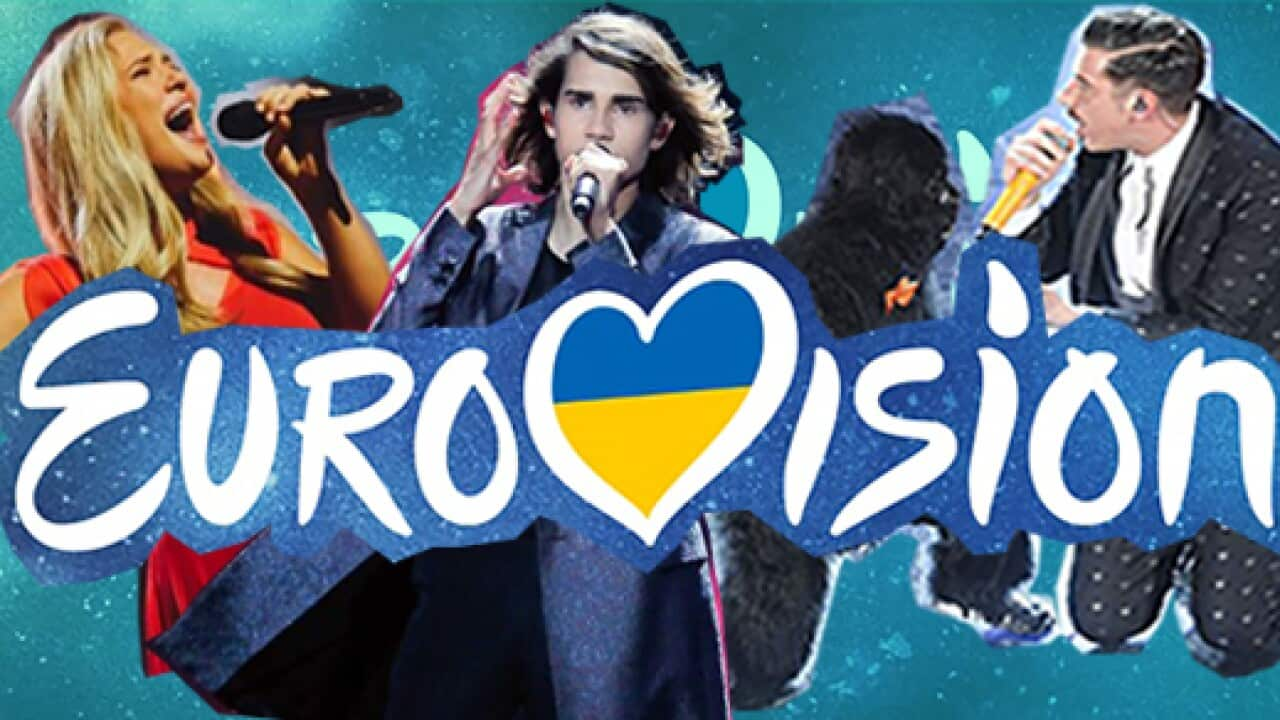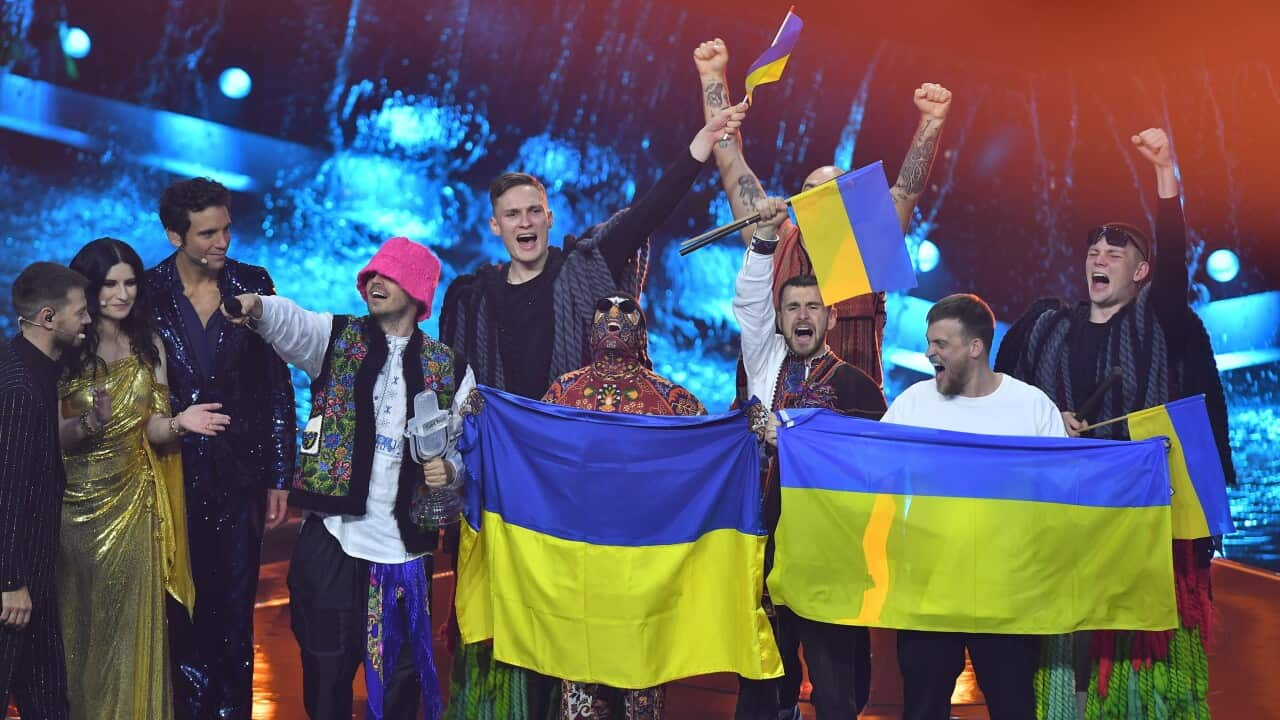It's an event full of unexpected surprises on stage and now the annual Eurovision song contest is putting the decision-making in the hands of more fans from different countries who are not already part of the competition.
The contest is being overhauled in 2023 with the public soon able to determine the countries that qualify from the two semi-finals, rather than both jury and a public poll.
Jury votes will still be part of the final outcome, where countries choose music experts who select their favourite act from another nation and offer their 'twelve points'.
The changes are taking effect to protect voting integrity after irregular patterns were identified at this year's event.
The rule update could alter the rich tradition of the European based contest and change the course of who becomes a memorable act and is part of Eurovision folklore.

Australia's Sheldon Riley represented the nation at this year's Eurovision held in Italy. Source: SBS
Voters in participating countries can vote via SMS, phone or the Eurovision app.
In this year's contest, Australian voters paid 55c per vote and were limited to 20 votes each.
Eurovision organisers the European Broadcasting Union (EBU) said on Wednesday the rest-of-the-world vote will happen via a secure online platform with a credit card.
Next year's Eurovision was already shaping up to break from tradition with Liverpool hosting the contest on behalf of the 2022 winners, Ukraine.
The EBU has ruled that security and safety reasons mean that the United Kingdom is best placed to hold the event in 2023 as the runner-up.
Organisers said the voting changes give more power to the audience and are a part of the song contest's strategy to evolve while remaining relevant.
The song contest's executive supervisor, Martin Österdahl, said in a statement: "We can also maintain the tradition of travelling around Europe and Australia to collect points and ensure a thrilling voting sequence with the winner only revealed at the very end of the show.”
But of Australia's past representatives, First Nations performer Isaiah Firebrace told The Feed the new system could potentially be unfair and controversial.
"I would really like to see how it all works out because people who may be really really well known in Europe and have really respectful fans and supporters in Europe, you know usually have a better chance winning at in Eurovision could be beat out by someone who has probably has more American fans," he said.
He questioned whether this voting update may change the public's motivation when choosing their favourite tune.
He said he hopes the artists will not be let down in the process.
"I just hope people vote for the actual amazingness of an original song, you know and not maybe because someone is popular," he said.
"What if people are voting, I don't know, for the wrong reasons," Mr Firebrace asked.
"I do support the idea of making it inclusive for more people around the world because I mean that is why Australia is in Eurovision," he said.

Isaiah Firebrace is on a lit-up stage with fireworks beside him singing into a microphone at Ukraine Source: AAP / SERGEY DOLZHENKO/EPA
"I think that when they allowed Australia to enter a few years ago it was a bit of experiment," she said.
Associate Professor Strong said the concept of a global song contest with missing markets is a fun idea.
She added that the entry of Australia back in 2015 was a big shift but she expects there will be opposition to this voting rule update.
"There are always people who every time there is a change in Eurovision will get upset," she said.
SBS has confirmed it will not hold Eurovision- Australia Decides, the selection event in 2023 where the nation chooses an artist to compete.
The broadcaster said recently it was a difficult decision and a variety of factors contributed it.
Eurovision gains international popularity
The competition has been gaining momentum in recent years with much debate about the musical acts, edgy performances and the voting process.
"A lot of the acts from it are getting more publicity and having their careers given an advantage by it in a way that hasn't sort of been much the case in at least not in the last few decades," Ms Strong said.
Associate Professor Strong used the examples of 2021 winner Måneskin and vocalist Sam Ryder riding the wave of success off the back of their Eurovision entries.
"It's not being seen as quite the silly gimmick show that it might have been 15 years ago I think," she said.
But the contest has not been without controversies, with irregular voting patterns detected for the jury decisions of six countries in 2022.
In 2018, Netta from Israel won the competition with her quirky #MeToo movement based song, titled 'Toy.'
Conchita Wurst of Austria was also a fan favourite, with the drag performer winning over audiences in 2014.
And there was strong public support for Kalush Orchestra who claimed victory for Ukraine this year with the folk inspired rap song, 'Stefania.'
Meantime, Russian acts were blocked from competing due to the invasion of Ukraine.
More than 160 million viewers tuned into this year's event.
The grand final result will still be determined by juries and viewers votes combined.
More than 35 countries will participate in the 67th Eurovision Song context next May.



